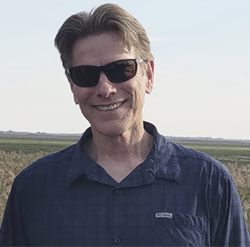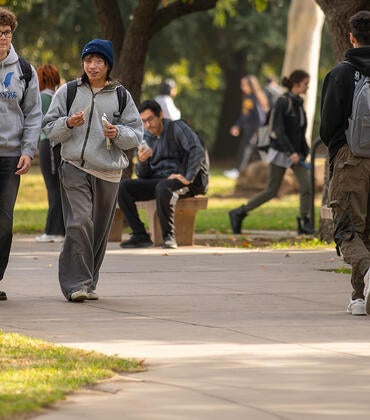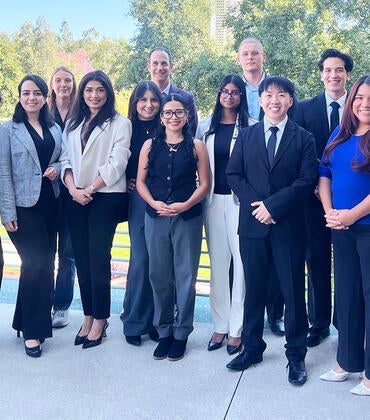UC Riverside professor Kurt Schwabe has joined a multi-university research team to assess the effectiveness and consequences of California’s water conservation laws.

In addition to Schwabe, the collaboration includes experts from UCLA, UC Merced, and Sacramento State University’s Office of Water Programs. The project is being led by the California Institute for Water Resources (CIWR) within UC Agriculture and Natural Resources and is in partnership with the California Department of Water Resources and the State Water Resources Control Board. The team aims to evaluate how water conservation policies—established by legislation in 2018 and 2022—impact supply reliability, system stress, wastewater treatment systems, and social equity across the state.
“These laws are ushering in a new era of water conservation in California,” said Schwabe, a professor of environmental economics and policy in UCR’s School of Public Policy. “We want to understand how well they’re working—and for whom.”
The laws require urban water suppliers to meet customized efficiency targets based on indoor and outdoor use, system water loss, and other factors. They also mandate long-term planning, including drought risk assessments and water shortage contingency plans. A key provision of the 2022 legislation reduced the indoor residential water use standard from 55 to 47 gallons per person per day by 2025, with a further reduction to 42 gallons by 2030.
The research team will identify challenges that water suppliers face in meeting these targets, while also examining broader impacts on water affordability and equity, and water treatment and reuse. Their findings, expected in January 2028, will inform state policy and planning decisions moving forward.
Areas of focus include anticipated trends in urban water demand and conservation, the interaction between urban water and wastewater systems, and the ripple effects on recycled water production statewide.
A leading voice in water economics, Schwabe’s past work includes economic assessments of urban and agricultural water use, affordability studies, wastewater treatment and reuse, and water supply reliability. He has also led interdisciplinary projects addressing Salton Sea management, groundwater impacts of crop shifts, and urban drought resilience. He was awarded a 2023–24 Fulbright Distinguished Chair Fellowship to study aquifer recharge and water markets in Australia and California.




